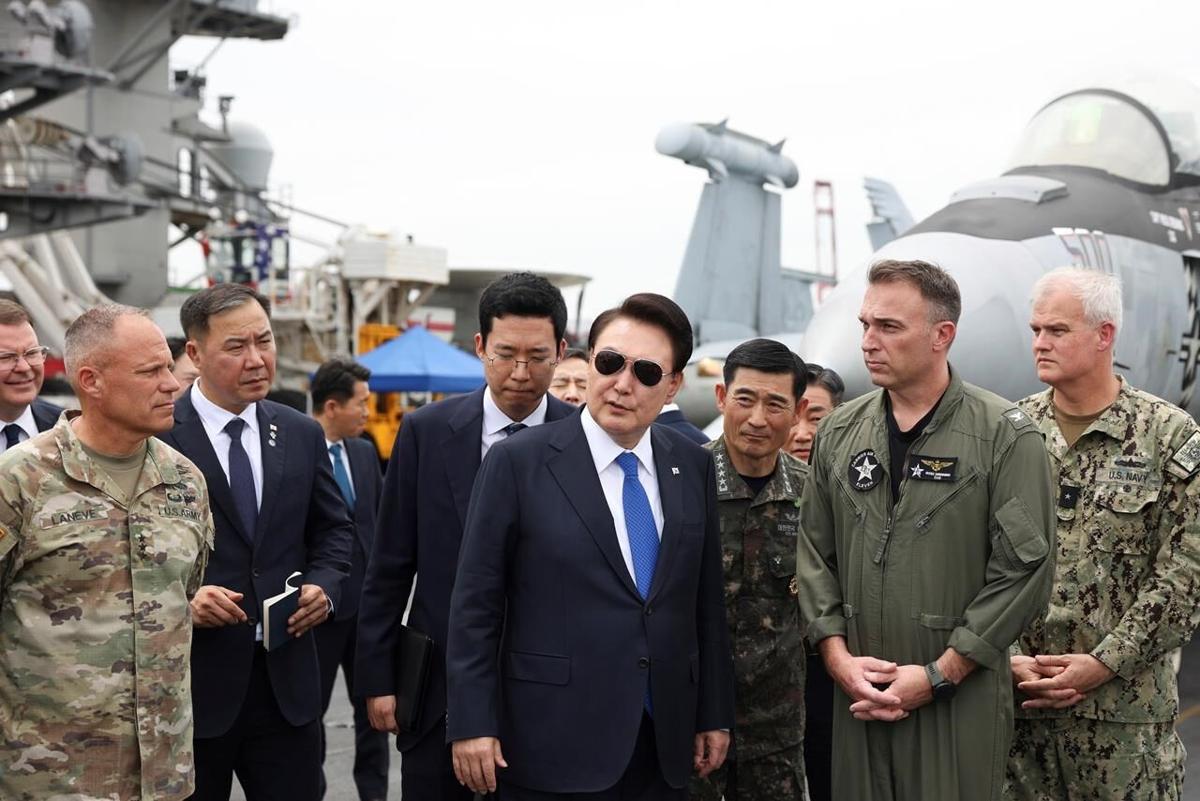 As North Korean and Chinese threats escalate, the United States is intensifying efforts to solidify defense partnerships with its Asian allies. Recently, the U.S. concluded its inaugural multidomain exercise with Japan and South Korea in the East China Sea, marking a significant step in strengthening these key security relationships. The exercise, named Freedom Edge, represents Washington’s commitment to enhancing joint defense capabilities in the face of increasing regional threats.
As North Korean and Chinese threats escalate, the United States is intensifying efforts to solidify defense partnerships with its Asian allies. Recently, the U.S. concluded its inaugural multidomain exercise with Japan and South Korea in the East China Sea, marking a significant step in strengthening these key security relationships. The exercise, named Freedom Edge, represents Washington’s commitment to enhancing joint defense capabilities in the face of increasing regional threats.
Held over three days, Freedom Edge included sophisticated air and naval drills designed to improve joint ballistic-missile defense, anti-submarine warfare, and surveillance operations. This exercise aimed to refine the ability of the three nations to share missile warnings—a critical capability as North Korea continues to develop and test advanced missile systems.
Japan and South Korea, aside from Australia, are the only U.S. allies in the region with the advanced military capabilities necessary for integrated operations with American forces. This interoperability is crucial in potential conflict scenarios, enabling, for example, rapid response coordination if South Korea detects a missile target. According to Ridzwan Rahmat, an analyst with defense intelligence firm Janes, such exercises foster the development of a cohesive fighting force among the three nations.
However, these exercises are not without risk. They often heighten regional tensions, as China routinely criticizes military drills conducted within what it considers its sphere of influence. Additionally, North Korea has condemned the arrival of the USS Theodore Roosevelt carrier group in Busan, South Korea, for Freedom Edge, labeling it as “provocative” and “dangerous.” Following South Korean President Yoon Suk Yeol’s visit to the Roosevelt, North Korea tested what it claimed was a multiwarhead missile, although South Korean and U.S. authorities later assessed that the launch failed.
The trilateral defense cooperation involving Japan and South Korea also presents political challenges due to historical animosities stemming from Japan’s occupation of Korea before and during World War II. Despite these challenges, both countries have significantly bolstered their military capabilities and host approximately 80,000 American troops. Japan’s Prime Minister Fumio Kishida has increased defense spending and cooperation with South Korea, actions generally well-received by the Japanese public but controversial within his party’s right wing. Similarly, President Yoon’s efforts to improve relations with Japan have faced domestic opposition but remain crucial for regional security.
Both leaders are working to strengthen their defense ties with the U.S. in anticipation of a potential new American administration. South Korean officials have expressed hopes of signing a formal security framework agreement with the U.S. and Japan this year, aiming to establish a unified response strategy to potential North Korean threats.

